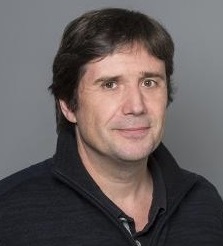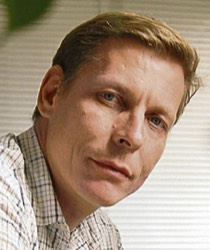Prejudice, Discrimination, and the Diversity Challenge
Next edition of this course: summer 2026. Registration opens in January 2026.
WHO IS THE COURSE FOR?
Bachelor and Master's students, Ph.D. candidates, researchers, as well as professionals from various backgrounds who are interested in prejudice and discrimination.
COURSE DESCRIPTION
Prejudice and discrimination are often causes of individuals’ suffering, social inequalities, and human conflicts in contemporary societies. Prejudice and discrimination are pervasive, difficult to counteract, and persist even in unsuspected contexts and organizations.
This summer school brings together experts and students from different countries to examine the origins and the consequences of prejudice. Where does prejudice come from? How do prejudice and discrimination affect people’s achievements, performances, and well-being? How can institutions reduce prejudice? How do laws prevent prejudice and protect minorities? What are the advantages of the inclusion of minority groups in the labor market?
We will address questions through lectures from keynote speakers in social psychology. The social-psychological analysis will be complemented by talks from other disciplines such as economy, law, social work, gender studies etc. Teaching methods include individual readings, class discussions, group exercises, and presentations. It will focus on contemporary cases of prejudice based on various group memberships and stigmatizing attributes, such as ethnic origin, religion, gender, sexual orientation, age, social class, disability, and unemployment.
This course is a unique opportunity to meet practitioners from different organizations in Geneva and to learn about implemented policies aiming at reducing discrimination and promoting diversity in the workplace.
LEARNING OUTCOMES
- Define the basic concepts and theories about stereotyping, prejudice, discrimination, and diversity from the perspectives of different disciplines (social psychology as well as the economy, law, social work, gender studies etc).
- Use this theoretical framework to critically analyze societal and social phenomena involving ethnic origin, religion, gender, sexual orientation, age, social class, disability, and unemployment etc.
- Identify policies to prevent and reduce prejudice and discrimination in different settings (the workplace, university) and assess the potential transfer of these policies to their own context
- Prepare and deliver a presentation about a specific form of stereotyping, prejudice, or discrimination taking into their own cultural, professional, and educational background.
This Summer School is organized in collaboration with Faculty of Psychology and Educational Sciences and Equal Opportunities and Diversity Office (both University of Geneva).
Please note that it is the student’s own responsibility to validate this course for credit at their home university prior to the summer school, as specified in our Terms & Conditions.
Junior professionals: CHF 1,100
External students (*): CHF 900
UNIGE students (*): CHF 250
(*) Bachelor and master’s degree-seeking students only. The tuition fees for lifelong learning students and Ph.D. candidates are subject to employment status.
APPLICATION DEADLINE: 30 May 2024
Note: No course-housing packages are available for this course.
Course Director:

Dr. Klea Faniko
Faculty of Psychology and Educational Sciences
Equal Opportunities Office
University of Geneva
Dr Klea Faniko is senior lecturer of social psychology at the university of Geneva. Her research focuses on discrimination and diversity policies. At the Equality & Diversity office (University of Geneva), she is in charge of the equality and diversity strategy action plan and different inclusion programs. She is the director of two large training programs: the international summer school “Prejudice, Discrimination, and the Diversity Challenge” and the continuing training “Promoting equality and diversity in the professional world”.
Course Assistant:
 Deniz Nala Kartoglu
Deniz Nala Kartoglu
Deniz Nala Kartoglu is currently a Master's student in integrative clinical psychology and social psychology at the University of Geneva. Deniz has participated in numerous awareness-raising projects such as the organization of a music festival for the city of Geneva, the publication of a scientific study on risk-communication related to COVID-19, the illustration of a children's book on diversity, and the participation in CNN's awareness campaign on modern forms of slavery.
Scientific Committee:
 Dr. Eva G.T. Green
Dr. Eva G.T. Green
University of Lausanne
Dr. Eva G.T. Green, professor in social psychology at University of Lausanne UNIL, Switzerland. At the crossroads of social, cross-cultural and political psychology, her research interests focus on intergroup relations (e.g., prejudice, power relations, political identities) in multicultural societies. Her research is mainly informed by survey, experimental and mixed methods approaches. She is currently vice-dean equality and junior faculty and chairs the UNIL Equality, Diversity and Inclusion committee.
 Prof. Olivier Desrichard
Prof. Olivier Desrichard
Faculty of Psychology and Educational Sciences
University of Geneva
Olivier Desrichard is in charge of the Applied psychology program and head of the research group in health psychology at the University of Geneva. He manages a master program which aims at training applied scientists in behavioral change. His research focuses on socio-cognitive determinants of behavior and decision-making, such as, for example, the role of self-stereotyping in memory performances of older people. He has previously been Professor of Health and Social Psychology and Dean of the Faculty of Human Science at the University of Savoie (France). He has been consultant for the National Institute of Prevention and Health Education, for National Cancer Institute, for the International Federation of Red Cross and for Becton Dickinson Medical.
 Prof. Didier Grandjean
Prof. Didier Grandjean
Faculty of Psychology and Educational Sciences
University of Geneva
Didier Grandjean is professor at the Faculty of Psychology and Educational Sciences and at the Swiss Center for Affective Sciences at the University of Geneva. He published more than 100 peer reviewed articles in international scientific journals in psychology and neuroscience about emotional processes related to emotional prosody perception and production, appraisal processes, the emergence of feelings, music and emotion, olfaction and emotion, and emotional facial expression perception and production.

Prof. Juan Manuel Falomir Pichastor
Faculty of Psychology and Educational Sciences
University of Geneva
Juan M. Falomir Pichastor is professor of social psychology at the University of Geneva, in the field of social influence, attitudes and attitude change. His research focuses on different issues such as intergroup relations (prejudice and discrimination), health behavior, social justice judgments or sustainable behavior.
Neda Askarinya, (from Iran), University of Nantes, France - 2022 Edition
Sincerely pleased and benefited from the interactive Geneva Summer School “Prejudice, Discrimination, and the Diversity Challenge” organized by the Faculty of Psychology and Educational Sciences and the Equal Opportunities Office (University of Geneva), under the leadership of Klea Faniko.
An inspiring week that brought together experts and students from different backgrounds to learn about implemented policies aiming to reduce discrimination and promote diversity in the workplace.
My special gratitude goes to Klea Faniko and the great professors who gave me this opportunity to interact with them on how to keep the issue of discrimination in perspective.
Franciska Krings, Maja Becker, Eva G. T. Green, David Bourguignon, Naomi Ellemers , Annette Kahlen, Juan Manuel Falomir Pichastor, Claudia Toma .
And special thanks to all my friends from all over the world, who shared their amazing experiences and made this week more wonderful for me.
Gwyneth Thong, Nanyang Technological University, Singapore
My time with the University of Geneva for the Geneva Summer Schools “Prejudice, Discrimination and the Diversity Challenge” has sadly ended, but I’ve gained so much in the process! I was fortunate to learn from my research idols whose work has been foundational to my research and catch up with the latest developments in the literature. The curriculum covered diversity management and intergroup relations, all topics essential in today’s world characterised by globalisation and the politics of identity.
I was the only Singaporean in a class of 25, which was an eye-opening experience. My classmates hailed from all places and backgrounds - lawyers, humanitarian workers, activists, teachers - to name just a few. The opportunity to learn from my classmates’ varied and expansive worldviews was a critical element of this formative learning experience.
We had cultural tours, roundtable discussions, and even a theatre immersion activity to explore how we could approach group differences and transform society into a more inclusive place for all. Of course, I was also proud to share about the multicultural heritage and policies of Singapore during our group presentation on the last day of the programme :-)
Thank you to Klea Faniko for organising this programme and Bruno Marcos for managing us, along with Professors Franciska Krings, Maja Becker, Eva G. T. Green, David Bourguignon, Naomi Ellemers, Juan Falomir, Annette Kahlen, and Claudia Toma! Also, a shoutout to all my classmates for making the experience so unforgettable.
A central goal I had in attending this programme was to learn from the best practices shared by experts and eventually apply them to a Singapore context. As I return to Singapore, I feel more confident that I can use my knowledge to become the change I wish to see.
“My first comment should have been on how exceptional I found the atmosphere of the class: kind, authentic, respectful of each and other, really interested in the course. I have never come across such a good working and learning environment.”
“Everything was so perfectly organized, it was so visible how much effort you all have put in this GSS program.”
“It was an unforgettable experience. Meeting people from all over the world and being able to exchange about the situation in our respective country was an amazing opportunity. I enjoyed this Summer School !”
“I really enjoyed all the inspiring conversations I had with fellow participants and lecturers and would recommend this to everyone who is interested! ”
“It was a great experience: great lecturers, on point organization, amazing group of students. I learned a lot and feel very inspired for the future!”

